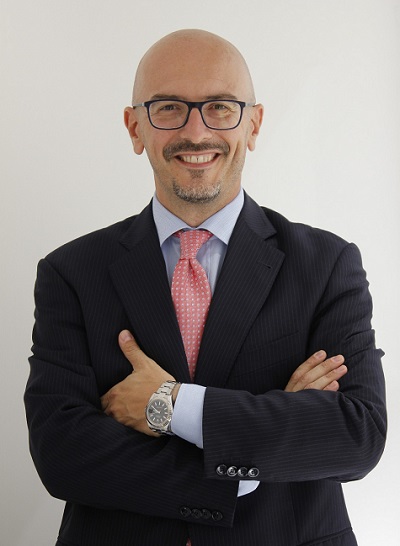In today’s post, Carlo Albini, HR Manager at Enel Romania, talks about what actions the company has been taking in diversity management.
Why and since when does your company believe and invest in diversity management?
The simple and straightforward answer is that diversity and inclusion are the keys to our success, two essential elements in the culture of a multinational Group such as Enel, which operates in over 30 countries worldwide. Since 2015, Enel Group has adopted a new vision in order to increase the involvement and participation of our people regardless of differences. We have named it “Open Power”, because diversity is all around us, it enriches us and introduces us to new ideas, boosting the opportunities to discover innovative solutions. In a changing world, our success comes from the people who work with us and from the efforts of the inclusive teams that create tangible value for our company each and every day.
What aspects of diversity management have the highest priority in your company?
Recognizing the uniqueness of every individual is the key to establishing a deeper relationship, increasing both motivation and the possibility to plan ahead, while tapping the hidden energies of teams, improving both our quality of life and the corporate climate.
Our respect for individuals is further enshrined in the principles of the Diversity & Inclusion Policy:
• non-discrimination and equal treatment of all colleagues based on their professional skills and abilities
• equal opportunities and equal dignity for all forms of diversity
• a commitment to the creation of an inclusive working environment
• work-life balance, and recognition of the needs of each individual during his or her working life.
Which D&I activities have been implemented in your organization so far?
At a global level, Enel Group has implemented a Diversity & Inclusion policy which is applicable across all countries where we operate. In addition, there are specific diversity policies for Enel’s Board of Directors and Board of Statutory Auditors describing such corporate bodies’ composition features deemed optimal for allowing them to discharge their tasks in the most effective way, taking decisions which may actually benefit from the contribution of a variety of qualified views so that the issues under discussion are considered from different perspectives.
In a field which was traditionally associated with men and where the majority of the employees used to be men, changes have happened. More and more women are working on our technical teams in distribution networks, managing plants and guiding our projects in contact with local communities: they are engineers, technicians and managers. In our selection processes, we pay close attention to the balance of male and female applications and promote awareness raising initiatives to encourage girls to pursue professional training in Science, Technology, and Engineering and Mathematics (STEM) subjects.
In Romania, we have begun a monthly series of Diversity Talks, in order to raise the awareness of our colleagues about the importance and the benefits of diversity in the workplace and the internal policies and mechanisms related to Human Rights. In addition, our internal action plan includes trainings, surveys, workshops and events organized on these topics.
Many companies aren't prioritizing inclusion and diversity initiatives right now. Why should they reconsider?
I believe there are business aspects to take into consideration. The first would be that this is not a sustainable business practice, and would not foster the durable development of countries and communities on a long term. Not prioritizing inclusion and diversity leads to lower attraction as an employer, greater risks regarding retention. Therefore, the company would be deprived of the contribution of a variety of views and different perspectives, which can lead to lost opportunities.
Finally, by adopting policies, programs and informal practices that promote diversity and inclusion, a company increases its financial performance and the value of a company as a whole.
In your opinion, what tangible benefits does diversity bring to your company?
The most important benefit is that taking decisions from different perspectives allow tasks to be completed in the most effective way. Teamwork means allowing everyone to come forward, because significant global innovations and small everyday improvements thrive in inclusive environments.
Also, recognition in this area brings other tangible results. Due to its efforts, Enel is included in the Thomson Reuters Diversity & Inclusion Index, designed to assess the top 100 global companies with the most diverse and inclusive workplaces, and in leading global sustainability indices, such as FTSE4Good, Dow Jones Sustainability Index World, Euronext Vigeo Eiris indices, the STOXX Global ESG Leaders indices and the Carbon Disclosure Leadership Index.
As a result, we have an increasing appeal to socially responsible investment funds, who own more than 8.4% of Enel’s total outstanding shares.
Can you name three diversity challenges that companies have to pay attention to?
I would mention age diversity in multi-generational companies, work-life balance and the constantly growing need to open the “doors” to external contributions and ideas thus adapting and reinventing ourselves in a fast changing world.
What do you do to convince your colleagues to see the value in diversity management, or even more to truly get them on board?
In my opinion, the most important factor is having a CEO that understands the true importance of an inclusive workplace and that empowers people to make a change. In Enel Group, but most importantly in Enel Romania, we have such leaders that inspire the management and strive to make our company a better place for each one of us.
Interview by Dana Oancea
